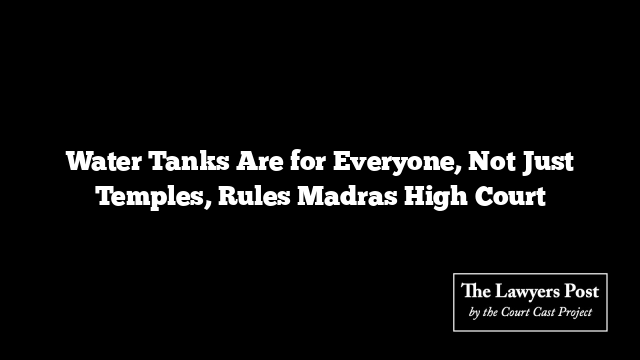A temple’s claim to exclusive ownership of a water tank, even one historically used for its rituals, has been struck down by the Madras High Court. The court ruled that the state of Tamil Nadu has the right to manage water bodies for the public good, a move it says doesn’t infringe on a temple’s religious rights.
The case centered on a 1963 law, the Tamil Nadu Minor Inams Act, which bars granting private ownership—or “patta”—of water tanks and ponds. The Madhu Sri Akkabai Ammani Ghadge Rao Trust, which manages the Somanathar Temple, challenged this law after being denied a patta for a tank on its land. The temple argued the tank was essential for rituals and had no agricultural purpose, so it should be exempt from the law.
The court rejected this, emphasizing that all water bodies are vital for the community, serving roles from water storage to groundwater recharge. Justices S. M. Subramaniam and A. D. Maria Clete stated that creating exceptions for temples would defeat the purpose of preserving water bodies as shared resources.
The court further clarified that while the temple could continue to use the water for its rituals, it couldn’t claim exclusive ownership. The justices pointed out that constitutional provisions for religious freedom (Articles 25 and 26) don’t grant an absolute right to own property simply because it has a historical religious link. The court maintained that the law allows for ritual access while withholding proprietary dominion, thereby preserving religious freedom without compromising public interest.
The state government had also countered the temple’s claim that the tank was only used for rituals, noting that fishing rights for the tank had been auctioned in the past.
Ultimately, the court affirmed that the law was a legitimate move by the state to distribute resources for the common good, aligning with a directive principle of the Constitution. It rejected the temple’s arguments that the law violated its right to property or was “colorable legislation” designed to acquire religious property without compensation. The court concluded that the 1963 law was valid and applied uniformly to all water tanks.




